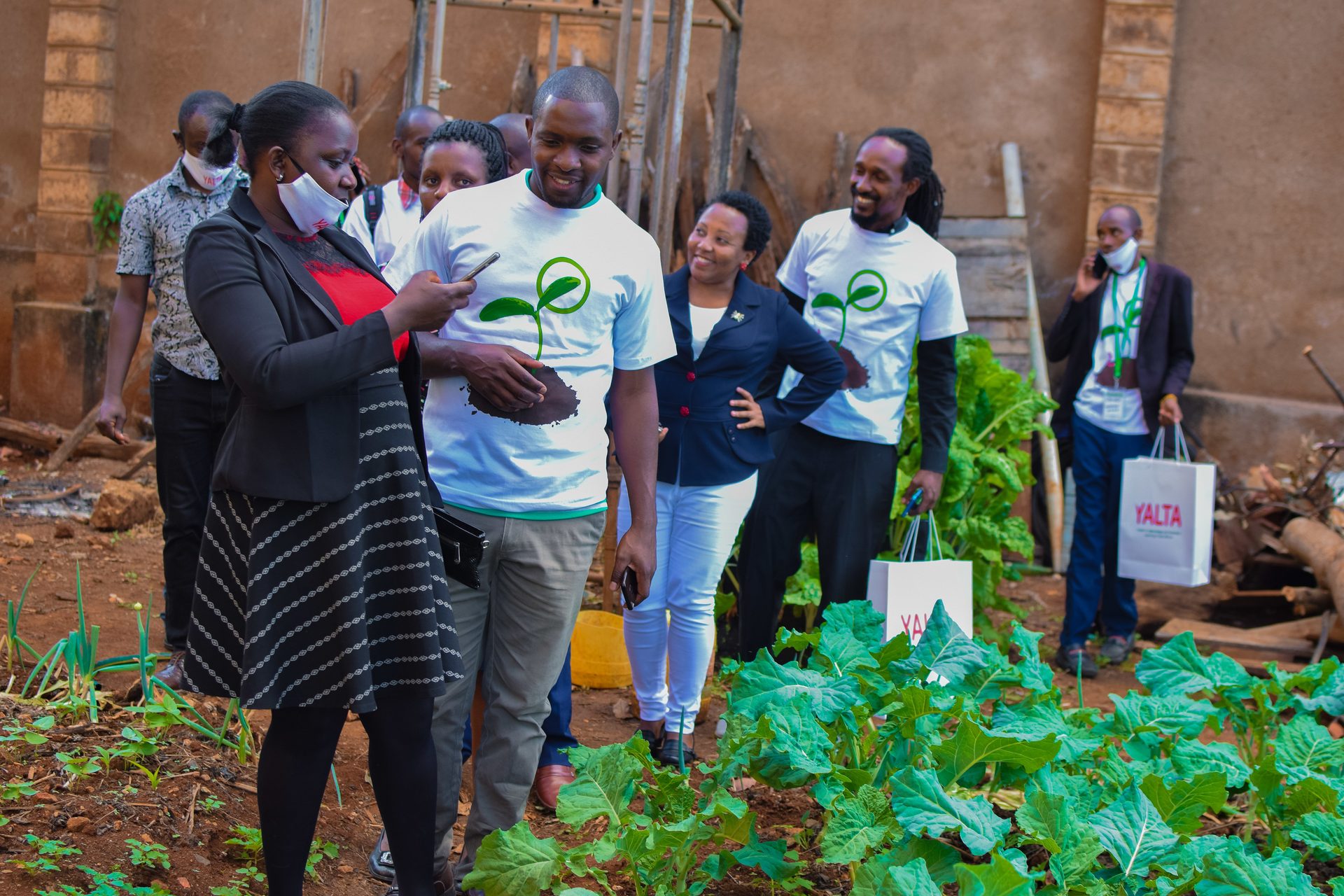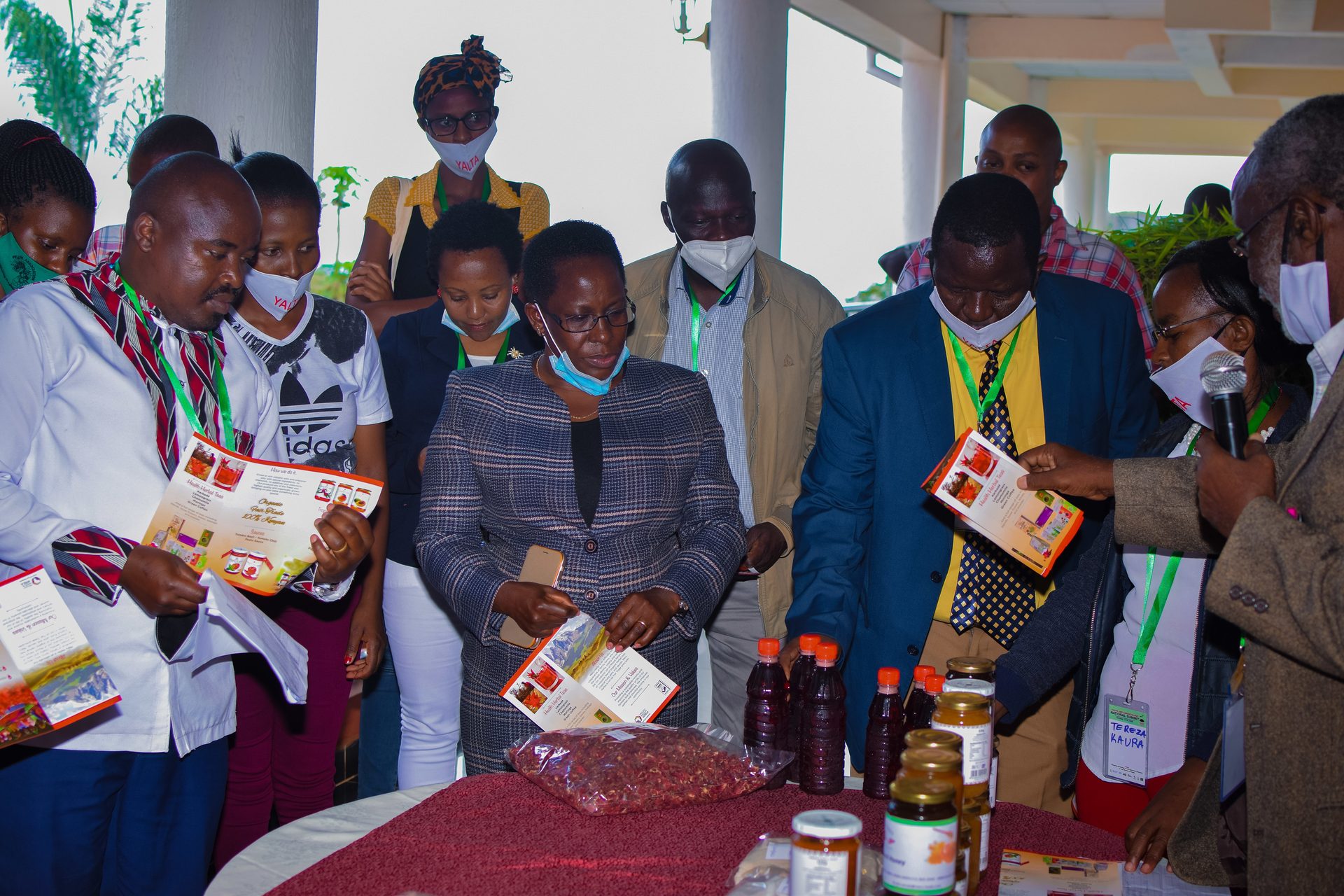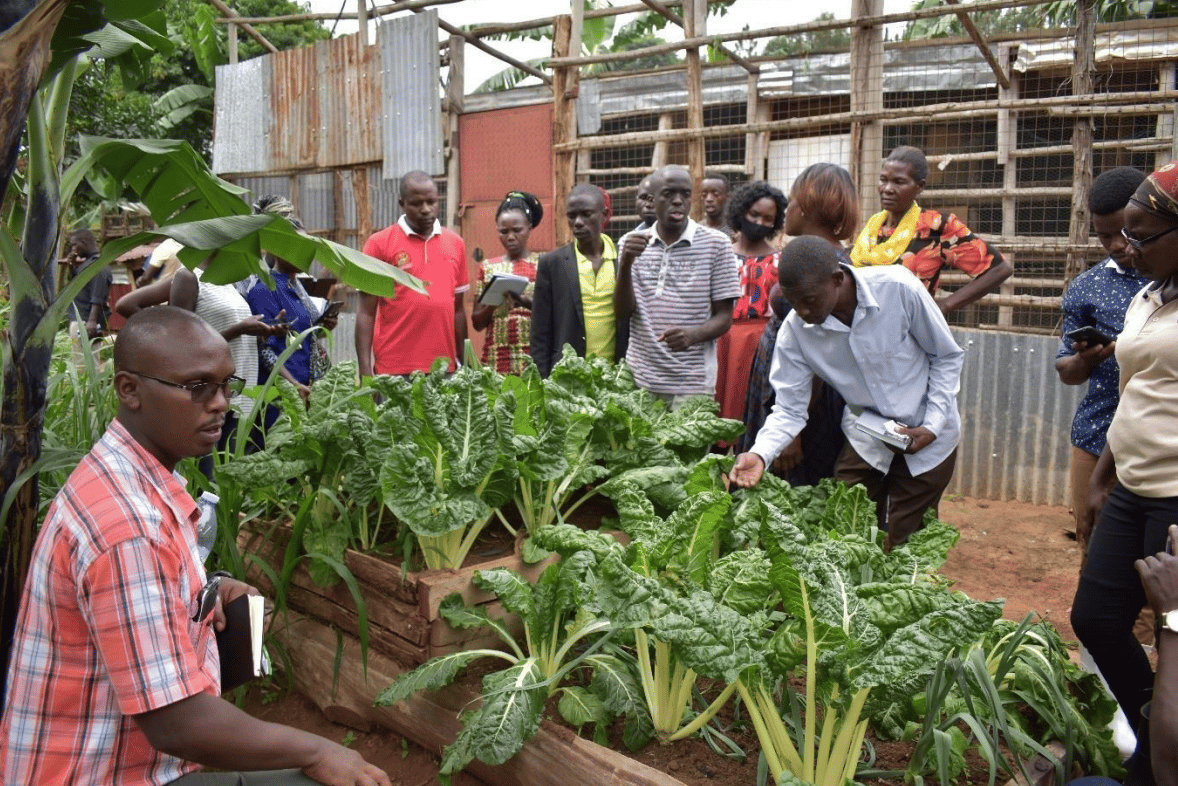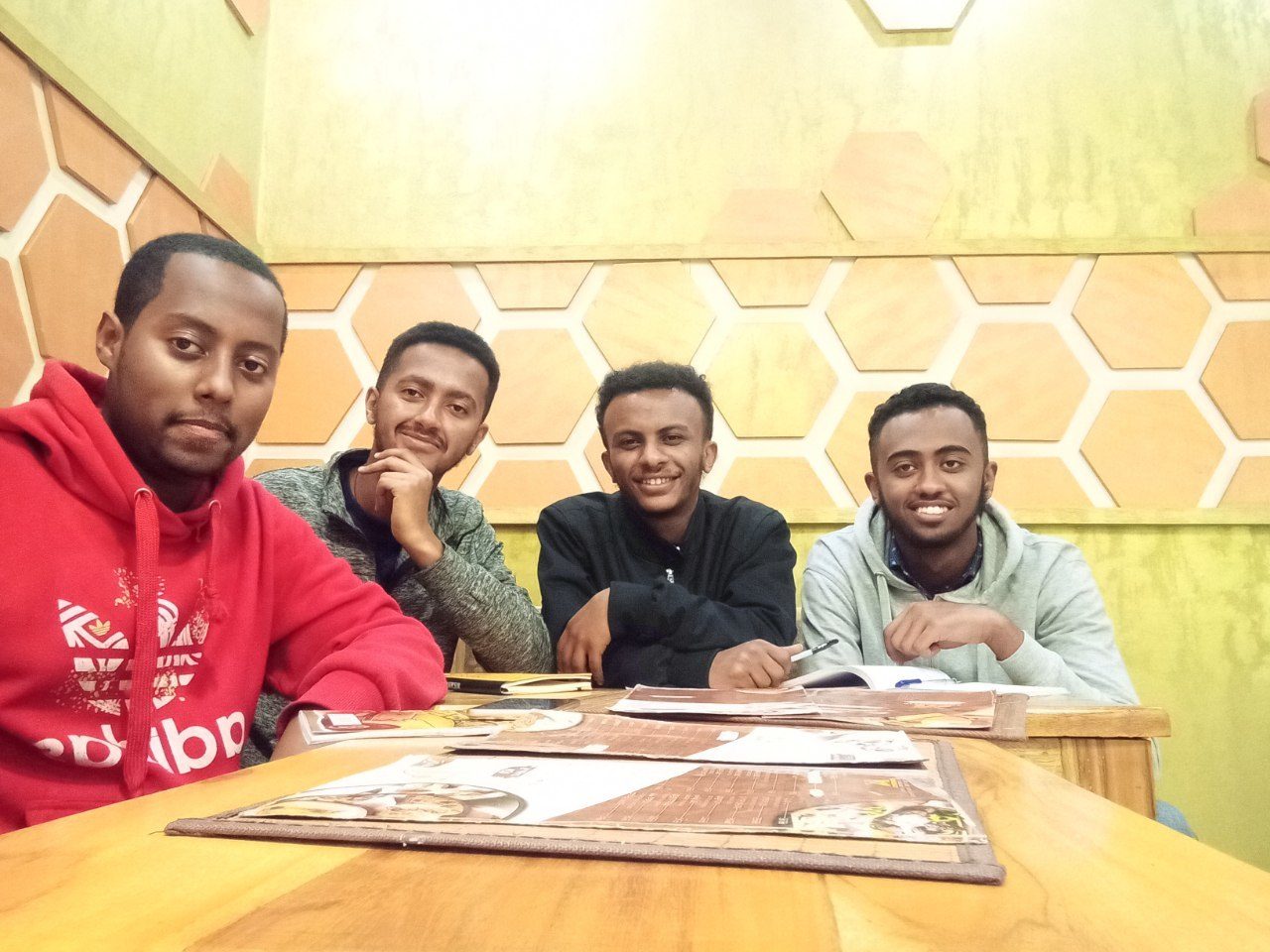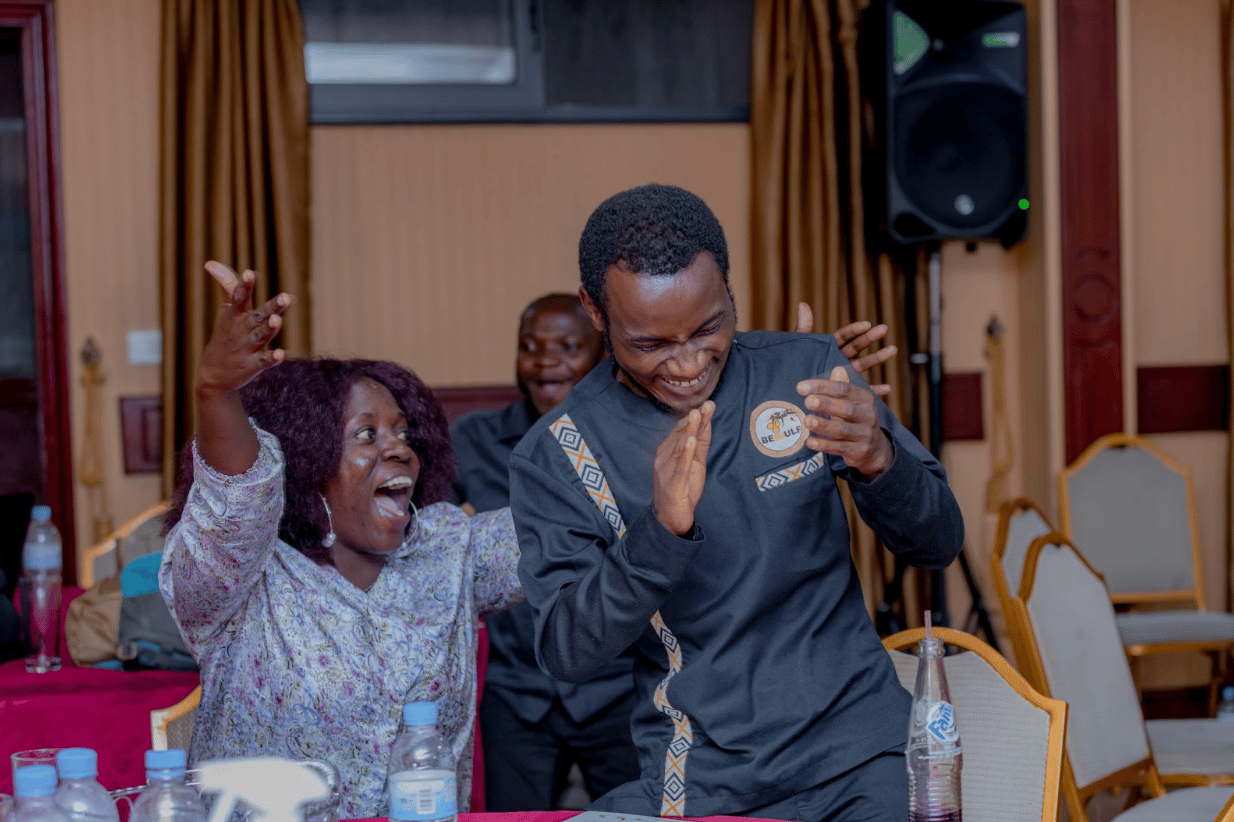Main Projects
Josephine Akia | PELUM
To get youth entrepreneurs interested in agroecology, we need to show them that it can make a change.This includes learning how to raise their voices and get a chair at the table where their future is discussed. Read more about the experiences of Josephine Akia, country coordinator of PELUM Uganda.
Expert Talk
David Ssembajwe | My Passion Farm
To get youth entrepreneurs interested in agroecology, we need to show them that it can be the basis of a successful business. And what better way than through those who have already done it? Meet David Ssembajwe, founder of Camelot Agroecology Farm.
Meet our entrepreneurs
Josephine Akia | PELUM
To get youth entrepreneurs interested in agroecology, we need to show them that it can make a change.This includes learning how to raise their voices and get a chair at the table where their future is discussed. Read more about the experiences of Josephine Akia, country coordinator of PELUM Uganda.
Expert Talk
David Ssembajwe | My Passion Farm
To get youth entrepreneurs interested in agroecology, we need to show them that it can be the basis of a successful business. And what better way than through those who have already done it? Meet David Ssembajwe, founder of Camelot Agroecology Farm.
Meet our entrepreneurs
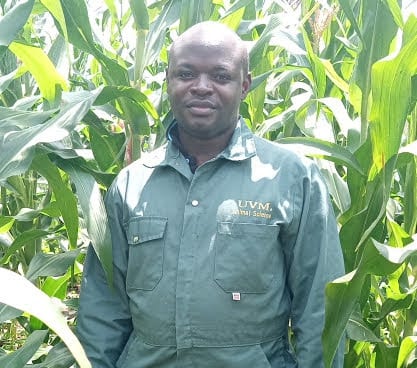
6 LESSONS ON PROMOTING THE EFFECTIVE ADOPTION OF AGROECOLOGY PRINCIPLES
6 LESSONS ON PROMOTING THE EFFECTIVE ADOPTION OF AGROECOLOGY PRINCIPLES
Lesson 1 | Provide Insights
A better view into the business opportunities in agroecology helped youth to embrace agroecology as a farming method.
Lesson 2 | Remember that seeing is believing
For many participants, the visits to agroecological
farms were the turning point. Exposure to successful agroecology cases and role models
worked better than training in a classroom.
Lesson 3 | Work with role models
The capacity-building activities for young entrepreneurs positioned them as role models and agroecology champions. This created a trickle-down effect as they became role models in their communities
Lesson 4 | Mentorship done right
Mentorship can be a strong model to improve agroecology businesses if you have the right information, starting with a clear needs assessment that leads to a good match between mentors and mentees. It is also important to have field experience, and when possible, a link to seed capital or funding through the mentorship.
Lesson 5 | Support Sustainable Learning Networks
The exchange of knowledge supported the creation of new agroecology value chains, as young entrepreneurs started buying and selling inputs and products to each other.
Lesson 6 | Local knowledge is best
Appreciate indigenous knowledge and integrate it with contemporary agroecology principles. Youth take knowledge from their farms and communities and are looking for ways to combine them with innovative practices.
Lesson 1 | Provide Insights
A better view into the business opportunities in agroecology helped youth to embrace agroecology as a farming method.
Lesson 2 | Remember that seeing is believing
For many participants, the visits to agroecological
farms were the turning point. Exposure to successful agroecology cases and role models
worked better than training in a classroom.
Lesson 3 | Work with role models
The capacity-building activities for young entrepreneurs positioned them as role models and agroecology champions. This created a trickle-down effect as they became role models in their communities
Lesson 4 | Mentorship done right
Mentorship can be a strong model to improve agroecology businesses if you have the right information, starting with a clear needs assessment that leads to a good match between mentors and mentees. It is also important to have field experience, and when possible, a link to seed capital or funding through the mentorship.
Lesson 5 | Support Sustainable Learning Networks
The exchange of knowledge supported the creation of new agroecology value chains, as young entrepreneurs started buying and selling inputs and products to each other.
Lesson 6 | Local knowledge is best
Appreciate indigenous knowledge and integrate it with contemporary agroecology principles. Youth take knowledge from their farms and communities and are looking for ways to combine them with innovative practices.
Main Projects
Josephine Akia | PELUM
To get youth entrepreneurs interested in agroecology, we need to show them that it can make a change.This includes learning how to raise their voices and get a chair at the table where their future is discussed. Read more about the experiences of Josephine Akia, country coordinator of PELUM Uganda.
Expert Talk
David Ssembajwe | My Passion Farm
To get youth entrepreneurs interested in agroecology, we need to show them that it can be the basis of a successful business. And what better way than through those who have already done it? Meet David Ssembajwe, founder of Camelot Agroecology Farm.
Meet our entrepreneurs




